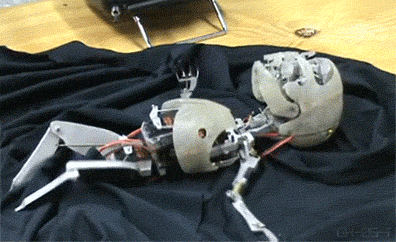We might already be smart enough to allow the continued survival of our species, but I wouldn’t bet on it. Homo sapiens will ultimately need to engineer evolution if we are to continue to thrive (though that new IQ better also be matched to improved ethics). Of course, our species with dramatically improved intelligence will no longer exactly be our species, but that’s not the worst thing.
In a Washington Post piece, UCLA Law Professor Eugene Volokh skillfully lays out the future, arguing that the path to tomorrow won’t be blocked by the reported 83% of Americans who currently think manipulating a baby’s genes for greater intelligence is wrong. It’s scary to think of such procedures at the moment, but eventually the moment will be different. An excerpt about designer babies and geopolitics:
Intelligence is, generally speaking, good, and more is, generally speaking, better. It’s better for the person in question. It’s better for society to have more intelligent people. It’s not the most important thing. But ask yourself: All else being equal, would you rather have your child have an IQ (for all the limitations of that measure) of 85, 100, 115 or 130?
So here’s how it will happen. Say the 83 percent poll results hold, even once safe genetic modification is available (it’s not clear they will, given that at this point they reflect a purely hypothetical question, but say they do), and Congress bans such modification. Or say there is worry — understandable when it comes to a new technology — that the modification won’t be safe and will cause the birth of children with various birth defects or other problems, so Congress bans it because of that.
Now it’s gone! No more of this awful technology. Except, wait: Say the Chinese don’t see things the way we do. Out come some number of babies with horrible birth defects (truly a tragedy, and as a purely ethical matter, possibly a reason against such experimentation; I’m just saying the ethics won’t matter much). And then things get worked out, and now the new generation of Chinese, or Japanese, or Russians becomes on average much smarter than the new generation of Americans. How long will American public opinion remain opposed to a technology that seems vital to national success, and perhaps even national independence?•

